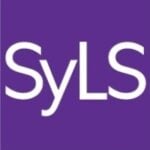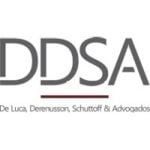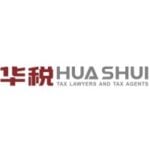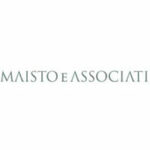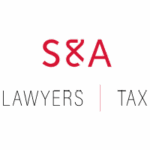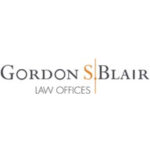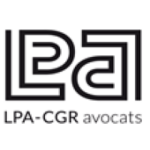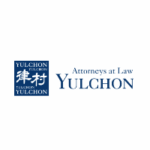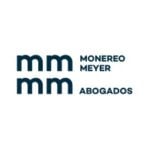-
How often is tax law amended and what is the process?
Singapore tax laws are usually amended on an annual basis, although ad hoc amendments may also take place throughout the year.
Generally, new tax laws and/or amendments are first introduced in the annual Singapore Budget Statement in Parliament. Subsequently, public consultations may be held, before the relevant tax amendment bill is introduced in Parliament for three readings. After the Third Reading, the bill is put to a vote. Once passed by Parliament, it is then reviewed by the Presidential Council for Minority Rights for any potential discrimination; the bill becomes law when it has been assented to by the President.
-
What are the principal administrative obligations of a taxpayer, i.e. regarding the filing of tax returns and the maintenance of records?
Individual income tax
Individuals are taxed on a preceding-year basis. For example, income that is taxable in the Year of Assessment (YA) 2025 generally refers to income earned from 1 January 2024 to 31 December 2024. Filing notifications are generally issued between February and March of every year, and the individual is required to file his/her income tax return by 18 April every year (or any other date specified in the relevant gazette notice).
Once the tax return is processed, the Comptroller of Income Tax (Comptroller) will issue a Notice of Assessment (NOA), also known as the tax bill. The tax assessed must be paid within one month from the date of the NOA (unless the individual opts for GIRO deductions—see question 5 below), even if the individual taxpayer intends to appeal or object against the assessment made.
Individual taxpayers are required to keep proper records and accounts for five years from the relevant YA. For instance, records supporting claims made in the YA 2025 (i.e. 1 January 2024 to 31 December 2024) must be retained until 31 December 2029.
Corporate income tax
Companies are taxed on the income earned in the preceding financial year. “Financial year” refers to the basis period, which is generally a 12-month period preceding the YA. Each company may have a different basis period based on different financial year-ends. For example, income earned in the financial year 2024 (e.g. 1 April 2023 to 31 March 2024) will be taxed in YA 2025.
For each YA, a company is required to file two Corporate Income Tax Returns:
- the Estimated Chargeable Income (ECI) to declare an estimate of the company’s taxable income for a YA, which is due within three months from the end of the financial year, unless the company is exempted or is not required to file an ECI; and
- the Form C/Form C-S/Form C-S (Lite) to declare the company’s actual taxable income for a YA, due by 30 November each year.
Whether the Form C, Form C-S, or Form C-S (Lite) applies depends on the company’s annual revenue.
The Inland Revenue Authority of Singapore (IRAS) adopts a risk-based approach to tax assessments, and companies are profiled based on the complexity of their business and tax matters, and risk to revenue. For companies with straightforward tax affairs, the Comptroller should issue the NOA by 31 May the following year. For companies with more complex tax affairs, the Comptroller may issue an estimated NOA by 28 February the following year and the NOA by 30 November of the second year. The tax assessed must be paid within one month from the date of the NOA (unless the corporate taxpayer opts for GIRO deductions—see question 5 below), even if the corporate taxpayer intends to appeal or object against the assessment made.
Similar to individual taxpayers, corporate taxpayers are required to keep proper records and accounts for five years from the relevant YA.
-
Who are the key tax authorities? How do they engage with taxpayers and how are tax issues resolved?
The IRAS is the tax authority in Singapore.
IRAS engages with taxpayers through a variety of avenues, including:
- e-Learning materials available on the IRAS website;
- social media platforms including Instagram, LinkedIn, and YouTube; and
- “Chat with IRAS” function available on the IRAS website, which allows the public to have real-time communication with IRAS officers for general queries.
For the purpose of resolving tax issues, taxpayers can reach out to the IRAS through the following channels:
- myTax Portal, a digital portal that allows individuals and businesses to view and manage their tax transactions conveniently (e.g. view NOAs, file tax returns, or pay taxes) as well as communicate with the IRAS via myTax Mail;
- submitting tax ruling and/or adjudication applications to clarify the income tax, goods and services tax (GST), and/or stamp duty treatment of certain transactions; and
- filing notices of objection in the event that the taxpayer wishes to dispute the amount of tax assessed, and the tax dispute may be further escalated through the Singapore court system. For example, for income tax matters, appeals may go through the Income Tax Board of Review, General Division of the High Court, and the Appellate Division of the High Court, unless certain conditions are satisfied, in which case the appeal may be heard by the Court of Appeal.
-
Are tax disputes heard by a court, tribunal or body independent of the tax authority? How long do such proceedings generally take?
Tax disputes are heard by a body that is independent of the IRAS. Most tax disputes are usually first heard at a specific tax Board of Review, followed by the General Division of the High Court and the Appellate Division of the High Court.
The duration of proceedings depends significantly on the facts and complexity of the case, as well as the tribunals’ and/or courts’ schedules and caseloads.
-
What are the typical deadlines for the payment of taxes? Do special rules apply to disputed amounts of tax?
For income tax, tax assessed must be paid within one month from the date of the NOA, even if the taxpayer intends to appeal or object against the assessment made. However, taxpayers that sign up to pay their income tax via GIRO (General Interbank Recurring Order) can enjoy up to 12 months of interest-free monthly instalments for individual taxpayers and up to 10 months of interest-free monthly instalments for corporate taxpayers. GIRO deductions are on the sixth day of every month.
For GST, payment is due one month after the end of every accounting period covered by the GST return filed. If the GST registered person is on the GIRO plan for GST payment, GIRO deductions are on the 15th day of the month after the payment due date.
For stamp duty, payment is due at the point of stamping. The dutiable instrument that is subject to stamp duty has to be stamped within 14 days after it has first been executed in Singapore or, if first executed outside of Singapore, within 30 days after it has been first received in Singapore.
-
Are tax authorities subject to a duty of confidentiality in respect of taxpayer data?
The IRAS and all IRAS officers are subject to official secrecy obligations, and are required to, amongst others, deal with all documents, information, returns, and assessments relating to the taxpayer’s tax matters as secret and confidential. Save for disclosures expressly permitted under law (e.g. producing in court income-tax information relating to a taxpayer for the purpose of prosecution proceedings for offences under the Income Tax Act 1947 of Singapore (ITA), complying with exchange of information arrangements that Singapore has established with other jurisdictions), it is generally an offence for the IRAS officer to communicate or allow any person to have access to taxpayers’ information.
-
Is this jurisdiction a signatory (or does it propose to become a signatory) to the Common Reporting Standard? Does it maintain (or intend to maintain) a public register of beneficial ownership?
Singapore is a signatory to the Common Reporting Standard (CRS) and has been exchanging financial information with partner jurisdictions since 2018. More recently, in line with amendments made to the CRS to bring new financial assets, products, and intermediaries within its scope (Amended CRS), Singapore has also signed the Addendum to the Multilateral Competent Authority Agreement on Automatic Exchange of Financial Account Information. Singapore is expected to commence exchanges under the Amended CRS in 2028.
Singapore does not maintain a public register of beneficial ownership. Instead, companies, foreign companies, and limited liability partnerships are required to maintain a Register of Registrable Controllers (RORC), which is a record of the entity’s beneficial owners that meets certain requirements (e.g. have an interest in more than 25% of the shares in the entity). Such RORC information in turn has to be filed with the Accounting and Corporate Regulatory Authority of Singapore and is not publicly accessible. RORC information will only be made available to law enforcement agencies for the purpose of administering or enforcing laws under its purview (e.g. investigation of money laundering offences).
-
What are the tests for determining residence of business entities (including transparent entities)?
An entity is tax resident in Singapore for the relevant YA if the control and management of its business were exercised in Singapore in the preceding calendar year.
Where the control and management of a company are exercised is a question of fact. Control and management have been interpreted to mean the making of high-level strategic and important policy decisions in relation to the entity’s business. Generally, if a majority of the entity’s board of directors meetings where strategic decisions are made are held in Singapore with some degree of regularity, the entity should be regarded as a tax resident in Singapore.
There is no separate tax-residency test for tax-transparent entities such as partnerships. Singapore income tax is generally levied at the partner level and each partner is taxed on its share of the partnership’s income. Thus, where the partner is an entity, its tax residency will depend on the control and management test set out above. However, where the partner is an individual, his/her tax residency will be determined based on the tax-residency test for individuals, and the IRAS would generally look at, amongst other things, whether the individual was physically present or exercised employment in Singapore for 183 days or more during the year preceding the YA.
-
Do tax authorities in this jurisdiction target cross border transactions within an international group? If so, how?
Taxpayers are required to apply the arm’s-length principle to ensure that transactions with related parties reflect independent pricing. Related parties generally refer to parties that are under the control of a common party, or where one controls the other, whether directly or indirectly. Accordingly, when entering cross-border transactions with related parties within an international group, it would be key to keep in mind such transfer pricing considerations. Where the pricing of related party transactions is not at arm’s length and results in understated profit (or overstated loss) for the taxpayer in Singapore, under the ITA the IRAS may make transfer pricing adjustments (increasing the profit or reducing the loss to better reflect arm’s-length pricing), as well as impose a 5% surcharge regardless of whether there is any additional tax payable resulting from the transfer pricing adjustment.
-
Is there a controlled foreign corporation (CFC) regime or equivalent?
Singapore does not have a specific CFC regime. Instead, Singapore combats risks related to profit shifting and base erosion through other avenues, including general anti-avoidance provisions, implementation of the principal purpose test in various tax treaties that Singapore has entered into with other jurisdictions, as well as the implementation of the Multinational Enterprise (Minimum Tax) Act 2024 of Singapore (MMT Act) to impose the Multinational Enterprise Top-up Tax (also known as the Income Inclusion Rule) and Domestic Top-up Tax on qualifying multinational enterprise groups (MNE Groups).
-
Is there a transfer pricing regime? Is there a "thin capitalization" regime? Is there a "safe harbour" or is it possible to obtain an advance pricing agreement?
Please refer to our response to question 9 on the Singapore transfer pricing regime.
Singapore does not have a specific thin capitalisation regime. However, loans between related parties must comply with transfer pricing rules, which require interest rates charged to be at arm’s length for tax purposes. As an alternative to performing a detailed transfer pricing analysis to determine the arm’s-length interest rates, IRAS has indicated that for related domestic loans entered into on or after 1 January 2025, if the lender and borrower of a related party loan are both taxpayers in Singapore and neither of them is in the business of borrowing and lending, the taxpayers can apply the IRAS indicative margin (published by the IRAS at the beginning of each calendar year) to derive the interest rate regardless of the amount of the loan. However, if the related party loan is a cross-border loan and the loan amount exceeds S$15 million, the IRAS indicative margin does not apply, and taxpayers should ensure compliance with the arm’s-length principle.
Singapore offers Advance Pricing Arrangements (APAs) as part of a dispute-prevention facility. APA is an agreement between the IRAS and a taxpayer or a relevant Avoidance of Double Taxation Agreement (DTA) partner to ascertain the pricing of a taxpayer’s related party transaction(s) in advance for a specific period. There are three types of APAs:
- Unilateral APA between IRAS and the taxpayer;
- Bilateral APA between IRAS and a DTA partner on the transfer pricing between entities in the respective jurisdictions; and
- Multilateral APA between IRAS and two or more DTA partners on the transfer pricing between entities in the respective jurisdictions.
-
Is there a general anti-avoidance rule (GAAR) and, if so, how is it enforced by tax authorities (e.g. in negotiations, litigation)?
Singapore’s GAAR is set out in Section 33 of the ITA. It empowers the Comptroller to disregard or vary an arrangement, and make any adjustment that the Comptroller considers appropriate, if the Comptroller is satisfied that the purpose or effect of the arrangement is directly or indirectly:=
- to alter the incidence of any tax that is payable by, or that would otherwise have been payable by, any person;
- to relieve any person from any liability to pay tax or to make a return under the ITA; or
- to reduce or avoid any liability imposed, or that would otherwise have been imposed, under the ITA.
In addition to the adjustment made under Section 33 of the ITA, the Comptroller is also empowered to impose a surcharge equivalent to 50% of the amount of tax or the additional amount of tax that is imposed on the person.
However, if the taxpayer can prove that the arrangement was carried out for bona fide commercial reasons and had not as one of its main purposes the avoidance or reduction of tax, Section 33 of the ITA and consequently the application of a surcharge may not apply.
Section 33 of the ITA may be enforced by the Comptroller during an audit and the Comptroller may in turn raise tax assessment(s) on the taxpayer. Should the taxpayer disagree with the assessment made and choose to file an objection, the appeal may be escalated through the Singapore court system.
-
Is there a digital services tax? If so, is there an intention to withdraw or amend it once a multilateral solution is in place?
Singapore does not impose a standalone digital services tax. However, GST is chargeable at the prevailing rate of 9% by GST-registered businesses on the following supplies:
- all services (including digital services) procured locally; and
- all remote services, including digital services, purchased by consumers in Singapore from overseas service providers.
-
Have any of the OECD BEPS recommendations, including the BEPS 2.0 two-pillar approach been implemented or are any planned to be implemented?
Singapore has implemented the global minimum tax into domestic law through the MMT Act. The MMT Act applies to in-scope MNE Groups for financial years starting on or after 1 January 2025.
Specifically, the MMT Act introduces the Minimum Top-up Tax (MTT) and Domestic Top-up Tax (DTT), which are adaptations of the Income Inclusion Rule and Qualified Domestic Minimum Top-up Tax (QDMTT) found in the model Global Anti-Base Erosion Rules.
The MTT will apply to in-scope MNE Groups that are parented in Singapore, in respect of the profits of their constituent entities that are operating outside of Singapore. On the other hand, the DTT will apply to in-scope MNE Groups in respect of the profits of the constituent entities that are operating in Singapore. Both the MTT and DTT collectively operate to impose a top-up tax of 15% if the jurisdictional effective tax rate of the in-scope MNE Groups falls below 15%.
-
How has the OECD BEPS program impacted tax policies?
The OECD BEPS initiative in general has impacted Singapore’s tax policies. For example, during the 2017 Singapore budget, Singapore introduced the Intellectual Property (IP) Development Incentive (IDI), which confers a concessionary tax rate on a percentage of qualifying IP income determined by the modified nexus approach recommended by the OECD.
More recently, Singapore also introduced the Refundable Investment Credit (RIC), which is an adaptation of the qualified refundable tax credit under the GloBE Model Rules. The RIC works as a tax credit with a refundable cash feature and is intended to support high-value and substantive economic activities. This includes the setup or expansion of manufacturing facilities, new innovation and research and development activities, as well as activities that support the green transition. The total quantum of RIC that a company is eligible for is to be determined by the Singapore Economic Development Board or Enterprise Singapore. Entities that are awarded the RIC may use the credits to offset against their corporate income tax, as well as any DTT and MTT liabilities, and any unutilised credit will be refunded to the company in cash within four years from when the company satisfies the conditions for receiving the credit. Notably, the RIC is a departure from past Singapore tax incentives, which did not have such a feature where unutilised credits are paid out to the corporate taxpayers.
-
Does the tax system broadly follow the OECD Model i.e. does it have taxation of: a) business profits, b) employment income and pensions, c) VAT (or other indirect tax), d) savings income and royalties, e) income from land, f) capital gains, g) stamp and/or capital duties? If so, what are the current rates and how are they applied?
Singapore imposes a variety of taxes, as set out in the table below. Unlike the OECD Model, Singapore generally does not impose tax on capital gains.
No. Tax type Examples of application Tax rate (a) Personal income tax Gains or profits from any employment. 0 to 24% (b) Corporate income tax Gains or profits from any trade or business. 17% (c) GST Standard rated supplies made in Singapore by a GST registered supplier. 9% (d) Stamp duties Transfer of interests in immovable property in Singapore. Buyer stamp duty rate ranges from 1% to 6%. Seller stamp duty rate ranges from 4% to 16%.
(e) Stamp duties Transfer of Singapore registered shares. 0.2% of the consideration paid or the value of the shares, whichever is higher. (f) Property tax Annual value of Singapore immovable properties. For residential properties, 0% to 36% of the annual value of the property. For non-residential properties, 10% of the annual value of the property.
-
Is business tax levied on, broadly, the revenue profits of a business computed in accordance with accounting principles?
Generally, Singapore does not impose tax on capital gains but imposes tax on income. While there are no specific laws or regulations that prescribe how to determine whether a gain is capital or income in nature, a gain should generally constitute income in nature if it arises from activities such as the carrying of a trade or business in Singapore.
A business’s chargeable income (i.e. profits subject to tax) may be different from the net profit/loss shown in its financial statements. Tax adjustments usually have to be made to the accounting profit to arrive at the income that is chargeable to tax, as certain income received (e.g. capital in nature) may not be taxable and/or certain expenses may not be deductible for tax purposes. Tax adjustments thus include deducting income that is not taxable, adding disallowable expenses, deducting unutilised losses brought forward from previous years of assessment and deducting capital allowances.
-
Are common business vehicles such as companies, partnerships and trusts recognised as taxable entities or are they tax transparent?
From a Singapore income-tax perspective, companies are generally recognised as separate taxable entities, whereas partnerships and trusts are generally treated as tax transparent. In the case of partnerships, Singapore income tax is generally levied at the partner level. In the case of trusts, income tax is generally levied at the trustee level, subject to certain exceptions where income tax is levied at the beneficiary level instead if the beneficiary is tax resident in Singapore and entitled to the trust income.
-
Is liability to business taxation based on tax residence or registration? If so, what are the tests?
Under the ITA, Singapore applies a territorial basis of taxation. A company is subject to corporate income tax in Singapore on the gains or profits of its trade or business accruing in or derived from Singapore, as well as any foreign-sourced income received or deemed to be received in Singapore, at the prevailing corporate income tax rate of 17%. Accordingly, regardless of a company’s place of incorporation and/or tax residence, it may be subject to Singapore corporate income tax if the aforesaid applies. The effective corporate income tax rate may be further lowered if the Singapore corporate taxpayer is granted certain tax benefits and incentives.
-
Are there any favourable taxation regimes for particular areas (e.g. enterprise zones) or sectors (e.g. financial services)?
While Singapore does not specifically have enterprise zones, the Singapore tax regime does provide a variety of tax benefits and incentives that may or may not be sector specific.
An example of a non–sector-specific tax benefit would include the partial tax exemption wherein all companies (whether Singapore or foreign incorporated) are eligible for the partial tax exemption on the first S$200,000 of their normal chargeable income subject to tax in Singapore. Further, foreign-sourced income in the form of dividends, branch profits, and service income received or deemed to be received in Singapore by a Singapore-resident company would also be exempt from tax if the relevant conditions are met.
Sectors that may be able to benefit from specific tax benefits and/or incentives include the maritime sector, aircraft sector, fund management sector, and insurance sector. For example, Singapore provides a suite of tax incentives for funds that are managed by a Singapore-based fund manager, which effectively exempts from tax specified income derived by a qualifying fund from designated investments.
-
Are there any special tax regimes for intellectual property, such as patent box?
While Singapore does not specifically have a patent box regime, Singapore does offer a variety of IP-related tax benefits and incentives, including:
- the IDI, which grants the approved IDI entity a concessionary tax rate of 5%, 10%, or 15% on a percentage of the entity’s qualifying IP income derived during the incentive period. Qualifying IP income refers to royalties or other income receivable by the approved IDI entity as consideration for the commercial exploitation of qualifying IPR (i.e. patents and copyrights subsisting in software) elected into the IDI;
- the Enterprise Innovation Scheme, which provides enhanced tax deductions and/or allowances on qualifying expenditure incurred on activities such as the registration of IP and the acquisition and licensing of IP rights. Businesses can also opt to convert up to $100,000 of total qualifying expenditure for each YA into cash at a conversion rate of 20%; and
- writing down allowances granted on capital expenditure incurred in acquiring certain qualifying IP rights (e.g. patents, copyrights, and trademarks).
-
Is fiscal consolidation permitted? Are groups of companies recognised for tax purposes and, if so, are there any jurisdictional limitations on what can constitute a tax group? Is there a group contribution system or can losses otherwise be relieved across group companies?
Income tax
Under the ITA, while each company is treated as a separate taxable person, there is a group relief system that treats companies in the same group as if they were a single company and permits certain current-year unutilised capital allowances, unutilised trade losses, and unutilised donations of one company to be deducted from the assessable income of the other company in the same group. The company that transfers any of its loss items is called the ‘transferor’ and the company that receives the loss items is called the ‘claimant’.
The transferor and the claimant must be Singapore-incorporated companies, belong to the same group of companies, and maintain a 75% shareholding threshold and have the same financial year-end.
GST
For GST registration purposes, group registration is permitted, which allows several companies to report GST (e.g. submit GST return) as a group instead of reporting individually. One of the companies will be nominated by the group as the representative member, but all members of the group are jointly and severally liable for any tax due from the representative member. Group registration allows several companies to centralise their administration for GST purposes, and supplies made between companies under the group are generally not subject to GST.
-
Are there any withholding taxes?
Singapore withholding tax is generally levied on certain types of payments that are made by a Singapore tax resident to a person that is not tax resident in Singapore. Examples of payments that are subject to Singapore withholding tax include the following, which are deemed under the ITA to be derived from Singapore:
- interest or any other payment in connection with any loan or indebtedness;
- guarantee fees relating to any loan or indebtedness;
- royalty fees for the use of or the right to use any movable property;
- payment for the use of or the right to use scientific, technical, industrial, or commercial knowledge or information;
- payment for the management or assistance in the management of any trade, business, or profession; and
- rent or other payment under any agreement or arrangement for the use of any movable property.
The rate at which tax is to be withheld for specified payments made to non-resident individuals is generally 24% and to non-resident persons (other than non-resident individuals) is generally 17%. However, the withholding tax rate may be further reduced under certain circumstances, such as where the non-resident person receiving the payment had derived the Singapore-sourced income through operations carried on outside Singapore and/or where a tax treaty concluded between Singapore and another jurisdiction applies.
-
Are there any environmental taxes payable by businesses?
Singapore has a carbon tax regime that forms part of Singapore’s comprehensive suite of mitigation measures to support the transition to a low-carbon economy. Since 2024, carbon tax is levied at S$25/tCO2e. The carbon tax will be further raised to S$45/tCO2e in 2026 and 2027, with a view to reaching S$50-80/tCO2e by 2030. This will strengthen the price signal and impetus for businesses and individuals to reduce their carbon footprint in line with national climate goals.
-
Is dividend income received from resident and/or non-resident companies taxable?
All Singapore-resident companies are under the one-tier corporate tax system where tax on corporate profits is final, and dividends paid by a Singapore-resident company are tax-exempt in the hands of the shareholder. Accordingly, regardless of whether the shareholder is a company or an individual and whether the shareholder is a Singapore tax resident, dividend income received from a Singapore tax resident company is not taxable.
Foreign-sourced income in the form of dividends that are received or deemed to be received in Singapore by a Singapore-resident company (e.g. from a company that is not tax resident in Singapore) would also be exempt from tax if the following conditions are met:
- the income is subject to tax of a similar character to income tax, or QDMTT (but disregarding any excluded top-up tax), under the law of the territory from which the income is received;
- at the time the income is received in Singapore by the person resident in Singapore, the highest rate of tax of a similar character to income tax (by whatever name called), disregarding any excluded top-up tax or QDMTT, levied under the law of the territory from which the income is received on any gains or profits from any trade or business carried on by any company in that territory at that time is not less than 15%; and
- the Comptroller is satisfied that the tax exemption would be beneficial to the person resident in Singapore.
-
What are the advantages and disadvantages offered by your jurisdiction to an international group seeking to relocate activities?
Besides the variety of Singapore tax benefits and incentives available, Singapore also has an extensive network of tax treaties concluded with more than 100 jurisdictions. An entity that is tax resident in Singapore and with international operations will be able to leverage Singapore’s extensive tax treaty network in order to enjoy more favourable tax treatments.
Singapore: Tax
This country-specific Q&A provides an overview of Tax laws and regulations applicable in Singapore.
-
How often is tax law amended and what is the process?
-
What are the principal administrative obligations of a taxpayer, i.e. regarding the filing of tax returns and the maintenance of records?
-
Who are the key tax authorities? How do they engage with taxpayers and how are tax issues resolved?
-
Are tax disputes heard by a court, tribunal or body independent of the tax authority? How long do such proceedings generally take?
-
What are the typical deadlines for the payment of taxes? Do special rules apply to disputed amounts of tax?
-
Are tax authorities subject to a duty of confidentiality in respect of taxpayer data?
-
Is this jurisdiction a signatory (or does it propose to become a signatory) to the Common Reporting Standard? Does it maintain (or intend to maintain) a public register of beneficial ownership?
-
What are the tests for determining residence of business entities (including transparent entities)?
-
Do tax authorities in this jurisdiction target cross border transactions within an international group? If so, how?
-
Is there a controlled foreign corporation (CFC) regime or equivalent?
-
Is there a transfer pricing regime? Is there a "thin capitalization" regime? Is there a "safe harbour" or is it possible to obtain an advance pricing agreement?
-
Is there a general anti-avoidance rule (GAAR) and, if so, how is it enforced by tax authorities (e.g. in negotiations, litigation)?
-
Is there a digital services tax? If so, is there an intention to withdraw or amend it once a multilateral solution is in place?
-
Have any of the OECD BEPS recommendations, including the BEPS 2.0 two-pillar approach been implemented or are any planned to be implemented?
-
How has the OECD BEPS program impacted tax policies?
-
Does the tax system broadly follow the OECD Model i.e. does it have taxation of: a) business profits, b) employment income and pensions, c) VAT (or other indirect tax), d) savings income and royalties, e) income from land, f) capital gains, g) stamp and/or capital duties? If so, what are the current rates and how are they applied?
-
Is business tax levied on, broadly, the revenue profits of a business computed in accordance with accounting principles?
-
Are common business vehicles such as companies, partnerships and trusts recognised as taxable entities or are they tax transparent?
-
Is liability to business taxation based on tax residence or registration? If so, what are the tests?
-
Are there any favourable taxation regimes for particular areas (e.g. enterprise zones) or sectors (e.g. financial services)?
-
Are there any special tax regimes for intellectual property, such as patent box?
-
Is fiscal consolidation permitted? Are groups of companies recognised for tax purposes and, if so, are there any jurisdictional limitations on what can constitute a tax group? Is there a group contribution system or can losses otherwise be relieved across group companies?
-
Are there any withholding taxes?
-
Are there any environmental taxes payable by businesses?
-
Is dividend income received from resident and/or non-resident companies taxable?
-
What are the advantages and disadvantages offered by your jurisdiction to an international group seeking to relocate activities?
